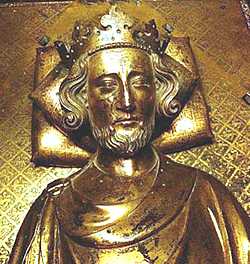Arts Menu
Politics
Political Studies or Political Science, as it is more commonly known, is one of the newest and fastest growing disciplines in the Humanities and Social Sciences. From a period in the early 1960s when there were few departments of political science, the discipline has expanded to the point where reputable universities must contain Political Studies departments.
The growth of Political Studies can be largely attributed to its subject matter: politics.
Political Studies examines politics, government and political ideas, themes which concern the every day life of ordinary citizens as well as scholars, bureaucrats and politicians. The breadth of the subject means that Political Studies is a highly pluralistic discipline.
Political Studies touches on political history, political philosophy, political sociology, political economy, political geography and political anthropology. The discipline is linked by a common effort to understand the vast field of politics and government.
Six major subfields
Canadian Politics involves the study of the institutions and processes of Canadian politics and government. The focus is on developing a critical understanding of how politics and government is structured in this country.
Political Theory is the examination and discussion of important political ideas. The accent is on the critical analysis of the theories of classical political philosophy as well as the ideas of contemporary political thinkers.
Comparative Politics is a multidimensional field incorporating studies of institutions and processes, public policy and theories of the state. This area deals with area studies, studies of a single foreign country as well as the analysis of various political phenomena in a number of different settings.
International Relations is one of the oldest parts of what is now considered political science. It involves the study of relations between states, diplomacy, war, peace and, of course, international organizations.
Public Policy and Administration is probably the newest part of the discipline. The emphasis is on explaining the outputs of government--what governments do (and do not do). As well there is an attempt to assess policy making structures with an eye towards prescription as well as analysis.
Political Behaviour focuses on understanding the attitudes and behaviours of those involved in politics. The subject matter is extremely wide but the primary emphasis is on methodology and voting behaviour. The methodological skills which are developed can be utilized in most of the other subfields.
Why take political studies at TRU
Courses are offered in Political Studies at all levels of undergraduate education. The emphasis at present is on Canadian Politics and Government and Political Theory but courses are available in all subfields. The offerings in first and second year are quite broad providing interested students with a wide ranging introduction to the discipline. This wide exposure is particularly valuable to students who wish to focus on Political Studies either at TRU or elsewhere. At present, upper level courses are offered each year both in Canadian and Political Theory. All courses are not offered annually but rather on a rotating basis. Students who remain at TRU for four years will have the opportunity to take almost every course.
Careers for graduates
A background in Political Studies not only creates politically aware citizens, but forces students to develop research, analytic and writing skills that stand them in good stead in whatever occupation they may choose. » Read more


